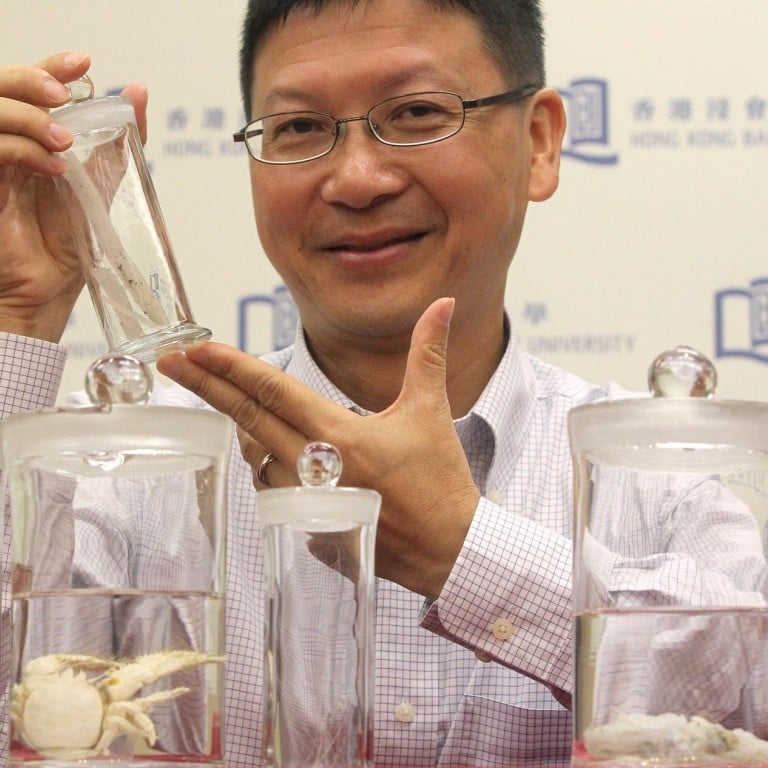
Hong Kong scientist's encounter with creatures from the deep
Scientist is amazed by what he finds along the ocean floor aboard Jiaolong research submarine
Plunging 1,200 metres deep into the South China Sea is nothing like what's shown in nature documentaries on television.
In fact, says Dr Qiu Jianwen, you can barely see anything at all at that depth because the organisms are so tiny.

After two days of training, Qiu joined the research trip from Jiangyin , Jiangsu province, on June 8. He said the highlight of his time on the submarine was diving to a depth of more than 1,200 metres for 7-1/2 hours on June 19.
"As we descended, what I saw was different to what you'd expect from watching National Geographic or IMAX movies," he said. "In the movies, there are many colourful organisms swimming around, but in reality, I could barely see a thing … the largest organism is only as big as a fingernail."
The sea floor was an even bigger surprise. "I was amazed when we got to the cold seep [an area of the ocean floor]. I didn't expect to see so many organisms in such deep waters. I thought this could happen only in shallow waters, with sunlight," he said.
Qiu returned with plenty of specimens - including glass sponge that can live for more than 10,000 years. It was the first time glass sponge had been found in cold seep, he said, in which the water temperature was only about 4 degrees Celsius.
He will study the marine animals to see if they are related to those in the Sea of Japan and Indian Ocean, and to find out how mutualism takes place between the animals and bacteria underwater. The other samples include about 20 mussels, 10 galatheid crabs, and a number of species he could not identify - that will be one of his tasks back at the lab.
Qiu aims to use his experience on the sea floor in his teaching - particularly in the areas of biodiversity, resource exploitation and environmental protection.
